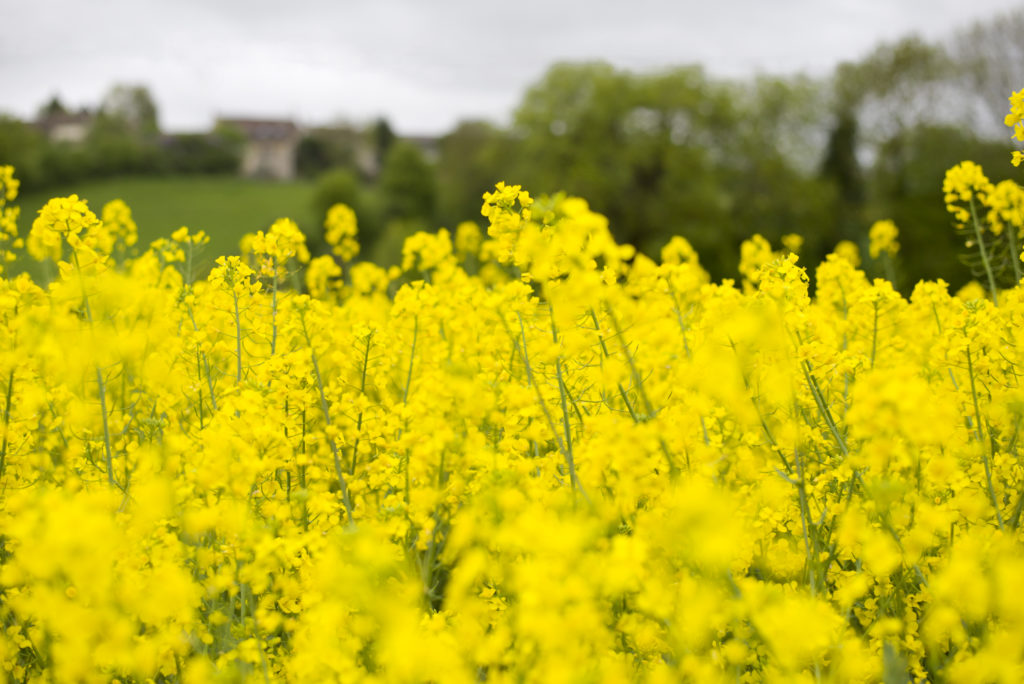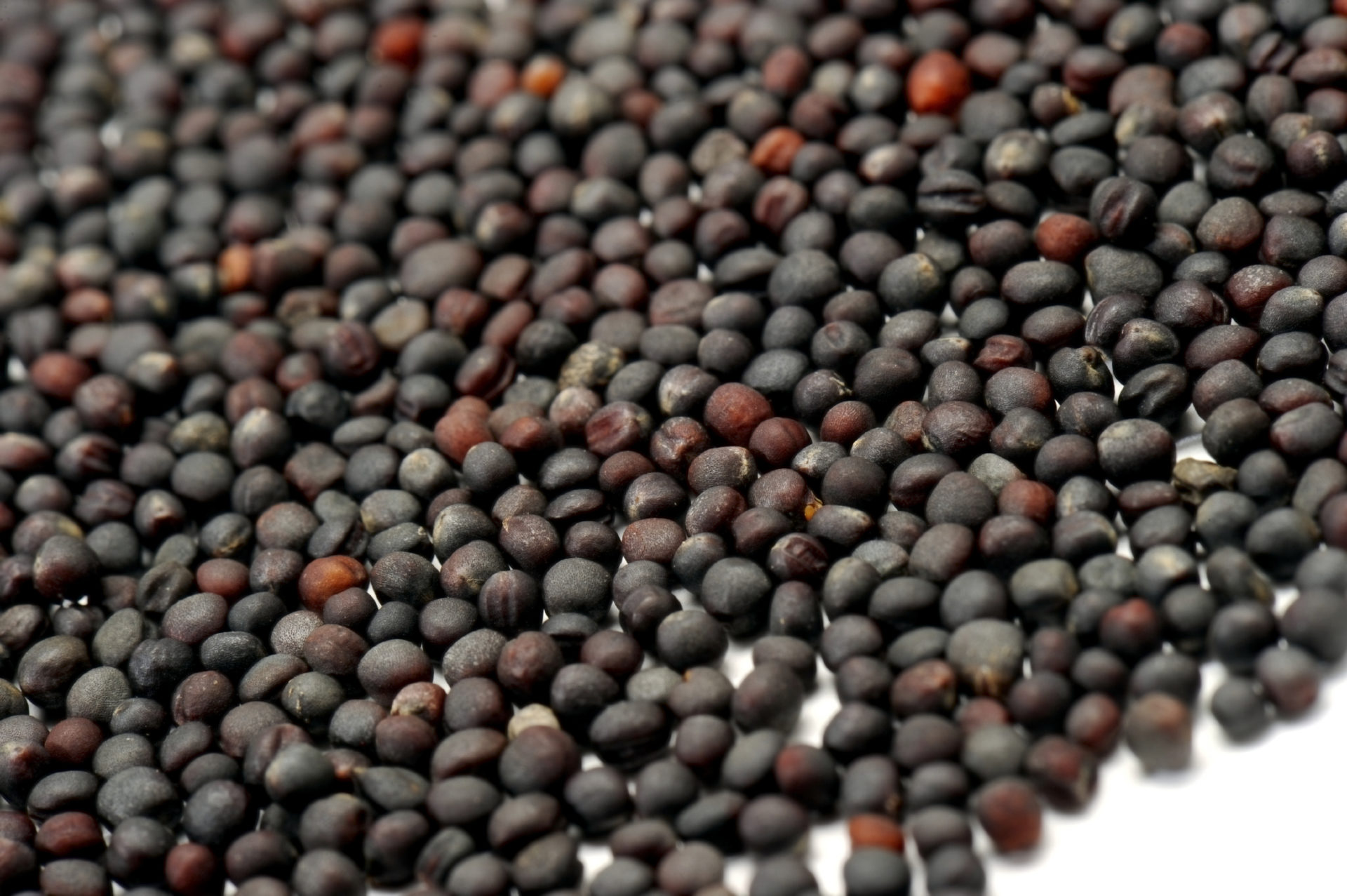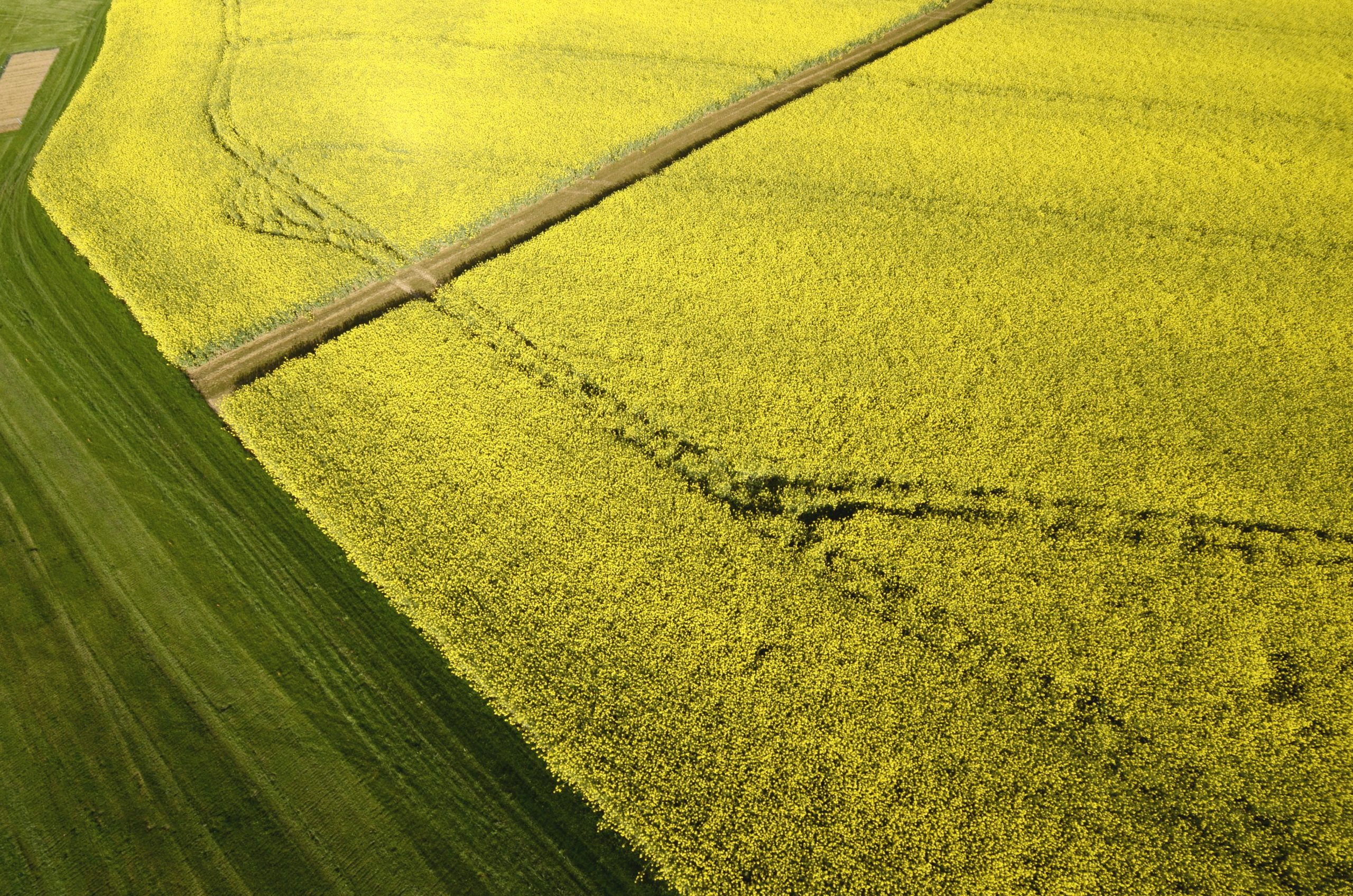of the weight of rapeseed
consists of fat
of the weight of the seed
is processed into meal for animal feed
tonnes of rapeseed
processed by Saipol in 2021
of rapeseed oil
is used as renewable energy
Seeds processed all year round
France is the leading European producer of rapeseed and Europe is the leading producer worldwide. This crop, which embellishes our landscapes with a yellow colour in April-May, produces seeds rich in oils and vegetable proteins.
Saipol processes seeds all year round. Between harvesting, which generally takes place in July in the northern hemisphere, and processing, the seeds are stored by collecting bodies (cooperatives and traders) or directly on the farm by farmers.

Benefits of rapeseed
Rapeseed is a multifunctional plant with many benefits. In crop rotations, rapeseed is generally planted as “starter crop”, i.e. it is planted at the beginning of a 3-year cycle, before cereals for example.
From an agronomic point of view, rapeseed, which is present in rosette form throughout the winter, will structure the soil thanks to its taproots, and will draw on any nitrogen residues present in the soil and prevent leaching into the water table. In the crop cycle, by being cultivated between cereals, it also breaks the cycle of disease and weeds. These benefits will allow the following crop to provide better yields.
Rapeseed is also an economical crop, as it is not irrigated and can be sown without ploughing. And these are not all the benefits: it is a honey plant which, in April, attracts pollinators and in particular bees. Depending on the year, rapeseed flowering is responsible for 10 to 15% of the honey harvest in France, i.e. rapeseed honey production of between 2,000 and 3,000 tonnes per year (according to the Observatoire de la production de miel et de gelée royale, FranceAgriMer). Bees also represent an important element that farmers preserve as they contribute to pollination and thus to the yield of rapeseed.

How is rapeseed processed?
Rapeseed undergoes various processing stages.
Edible rapeseed oils are obtained by pressing and extracting the seeds, followed by a food refining process (discolouration by bleaching earth and deodorisation by steam action) which preserves the properties of the oil while optimising its conservation. Rapeseed oil is rich in omega-3 fatty acids, which are known to have health benefits.
Pressed oil and extraction oil is also used in industry, particularly for the production of renewable energy. Saipol produces Diester, a biodiesel made in France from the transesterification of vegetable oils, and Oleo100, a renewable energy from French rapeseed. Raw vegetable glycerine is a co-product of this process.
The residue after extraction of the oil, which constitutes around 55% of the weight of the seed at the beginning of the process, is called meal. Rich in protein, it is a food of choice for livestock.

